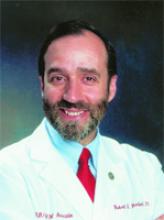A 35-year-old woman, gravida 0, has come in for an appointment with you for her annual exam. She is getting married in 6 months and plans to attempt to conceive immediately afterward. Her body mass index (BMI) is 27. She reports that she neither smokes cigarettes nor drinks alcohol, but she does drink four approximately 8-oz cups of caffeinated coffee a day.
“Will my coffee consumption hurt my chances of getting pregnant,” she asks, “or harm my baby while I’m pregnant?”
The patient consumes no other caffeinated foods or drinks. What do you tell her?
Every week, patients and clinicians are bombarded by television news reports about the risk of various environmental exposures to the developing fetus. These 15- to 60-second “science” reports are usually based on recently published research studies, but they tend to simplify vastly more complex stories. These days, caffeine is in the public spotlight as a risk to pregnancy.
Study: Miscarriage rate rises with caffeine intake
Recently, news media reported that consuming caffeine, even in a small amount (e.g., from 1 to 2 cups of coffee a day) may increase a woman’s risk of miscarriage (spontaneous abortion). This announcement in the press was based on a published study by Weng and colleagues1 of 1,063 women who had a positive pregnancy test and who were interviewed at approximately 10 weeks’ gestation about their exposures—including coffee intake, a major dietary source of caffeine (TABLE 1).
The researchers reported that, after accounting for many potential confounding variables, the subgroup of women whose caffeine intake was as high as 200 mg/day had a 42% increase in the risk of miscarriage compared with a control group of women who did not consume caffeine. Women whose intake was greater than 200 mg/day had a 123% increase in the risk of miscarriage—again, compared with women who did not consume caffeine.
What news reports did not mention were several methodologic issues that might have tempered interpretation and news reporting of the results:
- Overall, women who reported daily intake of caffeine above 200 mg were significantly older than women who did not consume caffeine; advancing maternal age is, of course, a major correlate of increased risk of miscarriage.
- Women in the study who had a miscarriage before their interview were not excluded from the study. These women might be exhibiting reporting bias and over-report their exposure to coffee.
- Only 40% of eligible women agreed to participate in the study.
TABLE 1
How much caffeine is in it? A sampling
| BEVERAGE | CAFFEINE CONTENT* |
| Brewed coffee (8 oz) | 130 mg |
| Instant coffee (8 oz) | 75 mg |
| Brewed tea (8 oz) | 50 mg |
| Cola beverage (12 oz) | 40 mg |
| Hot cocoa (12 oz) | 10 mg |
| FOOD | |
| Dark chocolate (1.5 oz) | 30 mg |
| *Approximate. | |
At the same time that Weng’s newsworthy investigation was published, Savitz and colleagues reported on their study of 2,407 women who had a positive pregnancy test and who were interviewed about their exposures, including coffee consumption.2 In this study, the researchers observed no increased risk of miscarriage related to caffeine exposure. The study was limited by the fact that few subjects consumed caffeine in the range of 500 mg/day, which limited investigators’ ability to assess the impact of a very high level of caffeine consumption on miscarriage.
The point, however, is that this study, which shows that modest caffeine intake is not a major modifier of miscarriage risk, wasn’t widely reported in the lay press.
With reports in conflict, what should you tell her?
One option is to gather more information. We should take into account, for example, a review of 15 major studies of the impact of caffeine intake on miscarriage,3 which found that
- the data from those 15 studies were of poor quality
- consequently, no definitive conclusion could be reached about caffeine and miscarriage.
Based on available data, however, it is likely that moderate intake of caffeine—in the range of, say, one or two 8-oz cups of coffee a day—doesn’t markedly increase the risk of miscarriage. But caffeine intake in the range of 500 mg/day, or more, may be associated with an increased risk of miscarriage.
Advice for the patient considering childbearing. What about the hypothetical patient whose case began this Editorial? I think it’s reasonable to advise her to moderate her consumption of caffeine. Specifically, I might recommend that she 1) limit daily caffeine to the equivalent of 1 or 2 cups (8 oz each) of coffee a day—roughly, no more than 250 mg—or 2) “cut out the caffeine” altogether.


